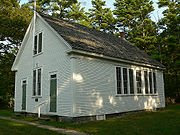For decades now, the federal government has essentially paid us to buy homes. This was a policy choice, and an easy one. People already wanted to buy homes. They were more than happy to allow Washington to give them money to do what they already wanted.
And this is not an entirely bad idea. Following World War II, the GI Bill allowed millions of veterans to obtain mortgages and purchase houses that they never would have been able to without government assistance. It is estimated that by 1955, 4.3 million home loans had been granted under the program with a total face value of $33 billion. This allowed many Americans to gain unprecedented equity in a way that was never possible before the GI Bill. The great expansion of wealth in our country since World War II can be attributed in no small part to the mortgage assistance given to veterans.
But that assistance has long since been replaced by unnecessary and inappropriate bribes. Here’s a list of some of the incentives offered by the federal government to induce home ownership:
- The interest you pay on your mortgage is tax deductible, up to $1 million.
- You don’t pay taxes on any profit you make when selling your home, up to $250,000 for a single person and $500,000 for a married couple.
- Local property taxes are tax deductible.
- Moving expenses to a new home are tax deductible.
That’s a lot of money being given away to convince people to do what they already want to do. The American Dream is already so tied up in home ownership, that incentives are only necessary up to the point where they encourage Americans to build equity and wealth as another form of savings. Anything beyond that is wasteful.
And we’re well beyond that. Nowhere is this more apparent than in the size of American homes. The average American home in 2006 was 2,349 square feet; in 1950 it was half that. With that extra size comes extra costs: heating, cooling, maintenance, furnishing, and all the stuff that can fit in the added space. We expand with our space. More space equals more use and more stuff. Concerns about this are causing many to seek smaller homes.
Thoughtful people have also drawn a connection between home size and quality of life. Today, it is common for both spouses to work, yet households feel like they have less money than they did 60 years ago. House size is large factor. Smaller homes can be run with less money, allowing one spouse to stay at home with the kids, at least part time.
Our suggestion is to make the hard choice and slash tax incentives for homes that are larger than 1500 square feet. If Americans want to buy a reasonably sized home where they can live, where they can raise their children, and that will earn equity for their savings, there should be a tax benefit for that. But if Americans want a large home for luxury, they will have to pay for it.
This might mean our kids will have to share a room. Or that we won’t have three TVs spread throughout the family room, play room, and den. In general, we won’t be quite as physically comfortable as we’d like to be. But this type of physical comfort is the easy choice. If we had made the hard choice decades ago to stop paying ourselves for larger homes, America might be a slightly better place now. Children would have fewer TVs to watch. They might have to get along better with others. And we all might have to talk more with one another.




No comments:
Post a Comment